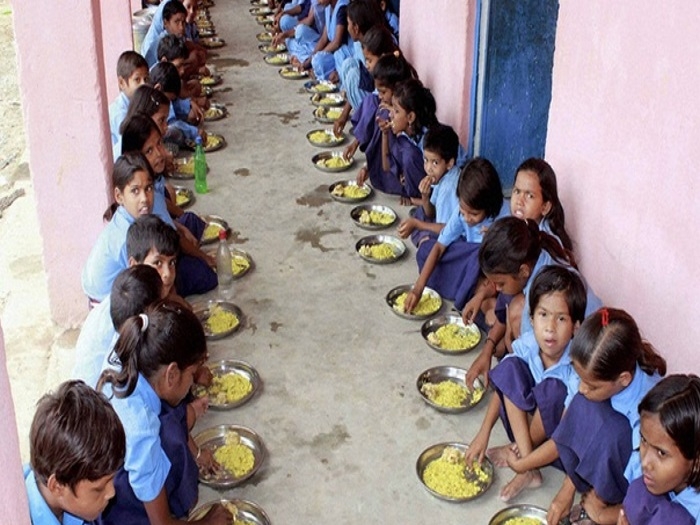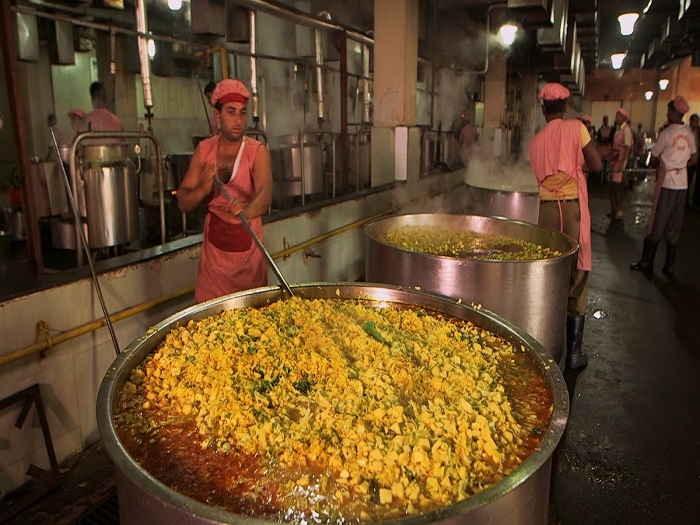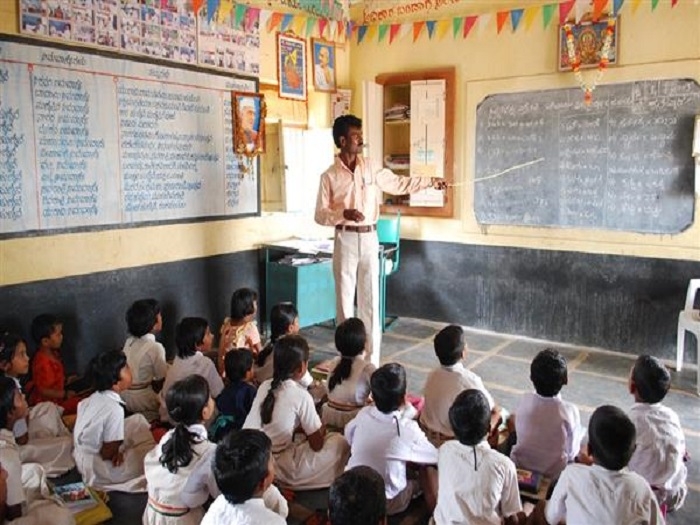No substitute for good teaching and clean cooking in our schools

Often it is discovered that the fund given by the Government is pilfered by the school management and the children are served a meal deficient in nutrition and hygiene. When I was still at the service of I.I.T. Kanpur in Uttar Pradesh, we discovered that the Government primary school in a neighboring village, called Bara Surahi, never opened for years, although two teachers were regularly drawing their salaries.
The poor of the village were more than eager to educate their children but suffered in silence till a charitable NGO started running a school in a rented premise, where the teachers were volunteers from among I.I.T. students and educated youth from the neighborhood.
The high and mighty in the village sent their children to a private school. It was not a case of lack of care on the part of the powerful. On the contrary they were careful to prevent the poor from acquiring education and, in private conversations, they argued that it was a waste to provide education to these ‘miserables’ (I have replaced the actual word they used) since, after all, they would have to continue to do the same kind of menial work that they have been traditionally doing or work on our fields on a daily wage. It is anybody’s guess what happened to the Government-provided fund for the mid-day meal scheme in such a social milieu.
If a school at a distance of half km from the perimeter of an IIT was in such a state, it is entirely probable that there were thousands of such schools all over Uttar Pradesh at that juncture.
Needless to say that the NGO, mentioned above, could not provide any meal, mid-day or otherwise, to the children. Even then there was hardly any drop outs. As per my experience, at least in a semi-urban locality the children do not drop out of school due to dire poverty. They do so when they sense that the school is not really educating but wasting their time and sometimes money. However, the mid-day meal scheme definitely serves the purpose of providing nutrition to the under-nourished children of the poor.
In a remote rural setting, it may serve the other purpose too, that is, to attract and retain the children in the school. The moot point is that the primary task for our primary school management is to make the teachers attend. The Government of the day from 2005 to 2011, the period of my observation, could not ensure any kind of teacher-attendance in the Bara Surahi School. This sorry state of affairs may have been older and may have continued even after I left, although I cannot say for sure.
The next task, after making the teachers attend classes, is to ensure that they teach properly. A teacher cannot be replaced by a large video screen receiving educational material from a satellite. Occasionally we hear a proposal that long distance tele-education can help spread literacy in areas, with no schools – all one needs is an operator who can run the video screen. This is an idea devoid of any merit, since all forms of education and particularly primary education are an interactive process where the pupils must be in touch with the teacher. Technology may aid a teacher but cannot replace him/her.
After good teaching, the next one in priority is clean cooking for the mid-day meals. Since last ten years or so the newspapers have been carrying numerous stories of food poisoning due to unclean cooking, mixing of a poisonous substance with cooking oil, or insufficient food being served due to mismanagement and/or corruption. Maneka Gandhi, the Minister of Women and Child Development in the present central Government has floated a new idea – to supply packets of standardized nutrition materials to all schools, where each pack is adequate for a single child, as per an Indian Express report of approximate date 20th September 2017.

Maneka Gandhi’s idea has just been floated and not implemented, but a different and more damaging scheme is already being implemented in the Government run schools of Ahmedabad city. The Akshay Patra Foundation, associated with the ISKON temple, has purchased a mechanized kitchen system, wherein cleaning of utensils, vegetable cutting, potato peeling, rolling Chapatis, cooking, packaging etc. are all done by the machines, which cost more than 12 crores.
The foundation has the contract to supply all the government-run schools in Ahmedabad. Only the distribution work to hundreds of these schools is done by man-driven delivery vans. The electricity bill of the mechanized kitchen system is high and got the temple management worried, and they are in consultation with the mechanical engineering department of an engineering college of Ahmedabad for energy audit and advice.
The mechanized kitchen system has replaced thousands of human jobs and increased unemployment; that too in Mahatma Gandhi’s Gujarat in a city known for his Sabarmati Ashram. The apostle of a spiritual humanistic participative society, running on an economy based on handicrafts and cottage industry, is virtually ignored, although some of his ideas are quite relevant in certain areas of social life even today. Our country is short in electricity and surplus in man power. But we indulge in mindless mechanization to accentuate both problems.
Machines are certainly necessary in a modern economy and mechanization unavoidable where quality cannot be ensured otherwise. But vegetable cutting, rolling Chapatis and cooking etc. do not fall in that category. The argument that proper hygiene and nutritious food cannot be ensured except in a centralized mechanized kitchen is not valid. People have to be trained and motivated to cook and serve children of their own community in a hygienic way. They should be motivated and equipped to use gloves and nose-mouth-mask for the entire operation.
If knowledge and practice of cleanliness and hygiene become wide spread among all castes and communities, it would synergize with the ‘Swaccha Bharat’ movement. There is no short cut to bypass training and motivating the masses. Corruption within the mid-day meal scheme can be eradicated only through the community’s participation in a school.


